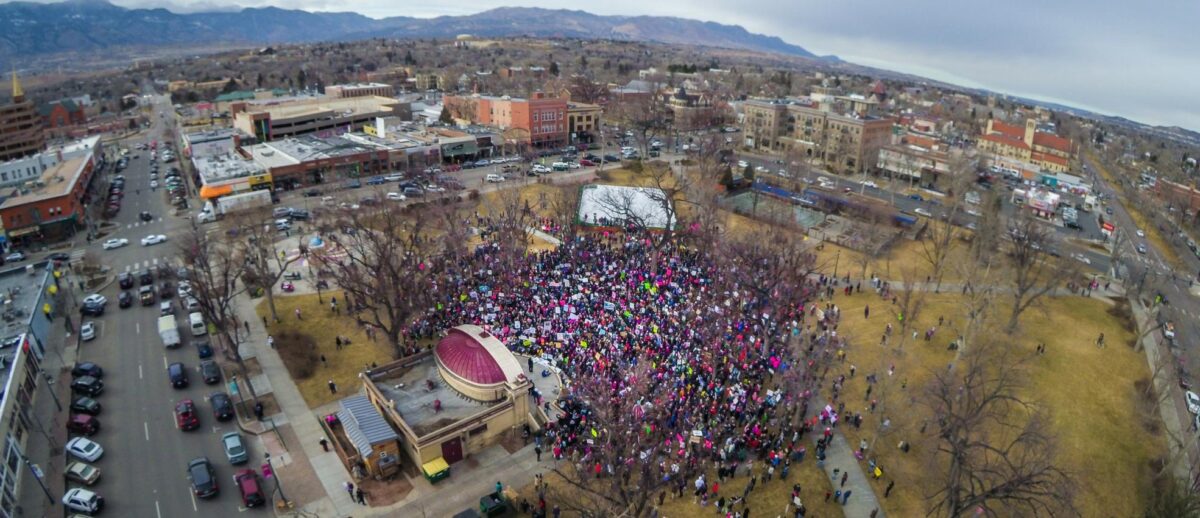Happy International Women’s Day! Today we celebrate the achievements of women in history who pushed for greater equality, while marking the important issues that still demand our attention today. At the Laboratory to Combat Human Trafficking, we’re proud to mark this special day in 2017 amidst a national atmosphere of heightened civic engagement.
Be Bold for Change
International Women’s Day (IWD) was established as a holiday in 1911 in the wake of growing women’s movements in Europe and the U.S. that demanded broader rights. It wasn’t until 1975 that the United Nations officially recognized International Women’s Day, launching it to the global stage it occupies today. By 1996, IWD’s organizers established a new practice of creating an annual theme for the event. For 2017, the IWD theme is #BeBoldForChange. The broad call to action encourages individuals and groups to, “help forge a better working world – a more gender inclusive world.” This concept is supported in part through the UN Women’s “Planet 50-50 by 2030” vision, an echo of the objectives outlined in the UN’s Sustainable Development Goal 5. (SDGs) Ultimately the SDGs and their call to gender equality and women’s empowerment are at the heart of International Women’s Day.
The Leadership and Legacy of Women at LCHT
As an organization founded by two women, LCHT’s interns and employees are reminded daily of the power of women to be changemakers and earth shakers in the workplace. A.J. Alejano-Steele and Amanda Finger, our co-founders, are women who fundamentally believed their contributions to the anti-trafficking field would make a difference. Their subsequent support of staff, interns, volunteers, and Board members is grounded in feminist values.

Laboratory to Combat Human Trafficking’s co-founders Amanda Finger and Dr. AnnJanette Alejano-Steele
Since 2005, LCHT has supported 120 interns on their journeys to become human rights leaders, of which 86% have been women. Many of these leadership development participants are emerging women leaders who are the next generation of changemakers within this movement, following in the footsteps of Amanda, A.J., and other female leaders who came before us. As I begin my own participation in the Leadership Development Program, I look forward to discussions around gender and its intersections with race, class, nationality, ability, sexuality and other identities.
Donate Now and Support Women in Leadership
Gender Identities and Human Exploitation
On International Women’s Day, it’s important to highlight how gender identities can relate to human exploitation. The United Nations’ initial anti-trafficking act, “Protocol to Prevent, Suppress, and Punish Trafficking in Persons, Especially of Women and Children”, identifies women and children as particularly vulnerable to human trafficking. A similar focus is found is the US’s foundational anti-trafficking act, the Trafficking Victims Protection Act of 2000, The Laboratory to Combat Human Trafficking takes these ideas of gender found in key legislation a step further: “We apply the basic feminist goal to challenge and change women’s subordination to men to our work in the anti-human trafficking movement. We extend that goal beyond a binary understanding of women and men, understanding that certain groups of men can be subordinate to certain groups of women, due to the fact that gender intersects with race, class, nationality, sexuality and other identities, to reinforce systems of power and oppression.”
Together with Parallel Movements
On International Women’s Day, we’re proud to hold up our work to combat human trafficking alongside many other parallel social change movements. We know that the same vulnerabilities that lead to human trafficking are connected to other issues being highlighted today from workplace discrimination to gender based violence.
To #BeBoldForChange, The Laboratory to Combat Human Trafficking will continue its commitment to educate and empower the next generation of human rights leaders. Those leaders will ultimately close the gap and create a more gender-inclusive world envisioned by all those who celebrate today.
Here are some ways to get involved with LCHT and support our work:
- Give a gift to support a scholarship for a Leadership Development Program participant
- Get e-updates to learn more about our mission and how you can get involved in the anti-trafficking movement
- Volunteer with the statewide CoNEHT hotline, a lifeline for people needing resources
- Apply for our Leadership Development Program to become part of LCHT’s next generation of human rights leaders
Leanne McCallum is a Development and Communications intern participating in The Laboratory to Combat Human Trafficking’s Leadership Development Program. She is currently pursuing a Master’s Degree in International Studies at DU’s Josef Korbel School. Leanne is also the Human Trafficking Index Project Manager at the Human Trafficking Center.

